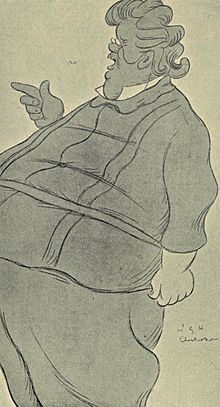In moral philosophy, deontological ethics or deontology (from Greek δέον, deon, "obligation, duty"[ is the normative ethical position that judges the morality of an action based on rules.
It is sometimes described as "duty-" or "obligation-" or "rule-" based ethics, because rules "bind you to your duty".
Deontological ethics is commonly contrasted to consequentialism, virtue ethics, and pragmatic ethics. In this terminology, action is more important than the consequences.
"the knowledge of what is right and proper"
Depending on the system of deontological ethics under consideration, a moral obligation may arise from an external or internal source, such as a set of rules inherent to the universe (ethical naturalism), religious law, or a set of personal or cultural values (any of which may be in conflict with personal desires).
Deontology is the study of that which is an "obligation or duty", and consequent moral judgment on the actor on whether he or she has complied.[citation needed] In philosophy and religion, states Bocheński, there is an important distinction between deontic and epistemic authority.[6] A typical example of epistemic authority, explains Anna Brożek, is "the relation of a teacher to his students; a typical example of deontic authority is the relation between an employer and his employee".[7] A teacher has epistemic authority when making declarative sentences that the student presumes is reliable knowledge and appropriate but feels no obligation to accept or obey; in contrast, an employer has deontic authority in the act of issuing an order that the employee is obliged to accept and obey regardless of its reliability or appropriateness.
Deontology is the study of that which is an "obligation or duty", and consequent moral judgment on the actor on whether he or she has complied.[citation needed] In philosophy and religion, states Bocheński, there is an important distinction between deontic and epistemic authority.[6] A typical example of epistemic authority, explains Anna Brożek, is "the relation of a teacher to his students; a typical example of deontic authority is the relation between an employer and his employee".[7] A teacher has epistemic authority when making declarative sentences that the student presumes is reliable knowledge and appropriate but feels no obligation to accept or obey; in contrast, an employer has deontic authority in the act of issuing an order that the employee is obliged to accept and obey regardless of its reliability or appropriateness.

The article quotes: ’They changed the rules for F.B.I. investigations'; well, hasn’t that stood the test of time?
'“What’s not O.K. is for the White House, and especially the President, to have any involvement with criminal prosecutions.' Yet conversely it is perfectly acceptable for legal minds, factually Trump haters, at vast taxpayers expense to pathologically pursue Trump associate with the knock on the door in the dead of night tactic; now what does that remind you of? Kafka or Hitler?
‘As to a baseless new inquiry into Clinton’ so you have already decided that it is baseless, without due process, (I think that is the legal term. no lawyer me, thank God).
A neutral state it is an asinine claim, there is no hill outside language where we can stand on and silently observe it (language} in our neutral state, for even though we are silent (supposedly neutral) we are still thinking in language, indeed the argument goes that language is fascistic.
If one wanted to get all Wittgensteinian ‘It ain’t what you say, it’s the way that you say it’ and the context in which you say it. I should be lecturing at Journalism school, (Joke) Well, at least I am not neutral. Nor is Mr Leonhardt who judging by this piece is wholly partisan.